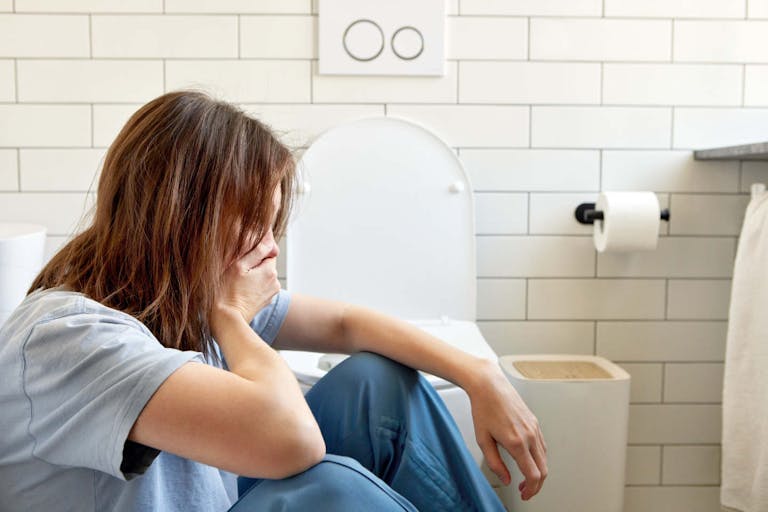
Welsh women denied needed pregnancy medication are getting abortions
Cassy Cooke
·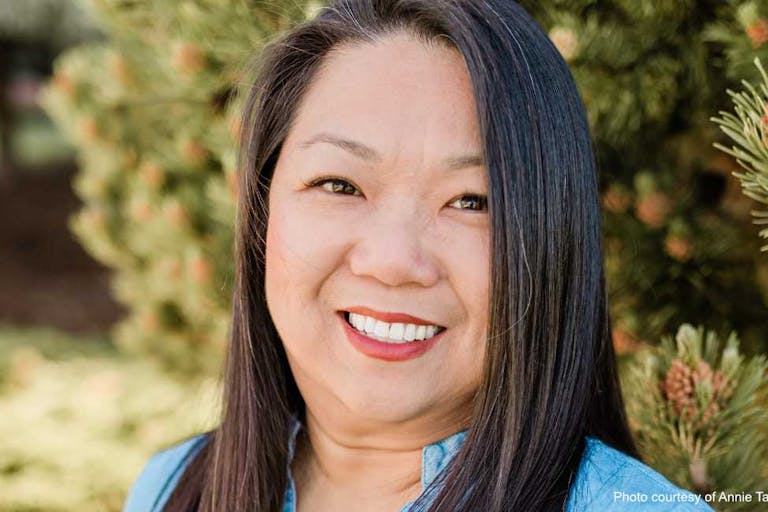
Post-abortive mom says church must help other post-abortive women to ‘come out of the shadows’
When Annie Tang Humphrey was just 12 years old, she and her mother emigrated to the United States from Taiwan to stay with an aunt and uncle residing in San Diego. While her mother worked two jobs, Humphrey struggled to learn English and grasp the culture of her new country with the help of her uncle. But the young girl became increasingly uncomfortable in his presence when his tutoring turned physical.
Humphrey told Live Action News, “My uncle got ‘touchy-feely’ after a while and at first, I didn’t think he was doing anything wrong. I didn’t have a father figure in my life, so I initially wondered if this was the way a man showed fatherly love. In the Asian culture, you don’t talk about sexuality, and you don’t upset the apple cart, so I didn’t say anything.”
But Humphrey started wearing long sleeves and covering up to deter his advances. Unable to keep quiet any longer, she told her mother what was occurring.
“My mother was concerned but terrified we’d be kicked out if we made a fuss,” Humphrey said. “She told me to protect myself until we could afford to get our own place. We eventually moved out, but the experience shaped me into someone who had to be in control in relationships with men.”
A vow to be in control at all times results in a devastating choice
Determined never again to be vulnerable to the whims of any man, Humphrey went on to college where she excelled academically and had a large circle of friends. Eventually, she met a young man with whom she began an intimate relationship, resulting in an unplanned pregnancy.
Humphrey told Live Action News, “The need to be in control kicked in and I thought, I must take care of this problem. I belonged to the Asian-American Christian Fellowship at the time and I was horrified at someone finding out what I had done. I knew how gossipy and judgmental they could be. I wouldn’t let that happen to me.”
With nowhere to turn, a desperate Humphrey shared her predicament with a pro-choice friend who encouraged her to get an abortion. She offered to drop Humphrey off at the Riverside Planned Parenthood where she could quietly terminate her pregnancy, and nobody would ever know.
“When I arrived there, I felt as if everything was in slow motion,” Humphrey said. “I clearly remember the smell, even the temperature inside the room. As I used my credit card to pay for the procedure, I thought, I’m just ‘swiping’ away my problem.”
She waited, rubbing the goosebumps on her arms sitting stiffly among the other women, all of them staring downward, careful to avoid eye contact with those who shared their sorrow and shame. When her time came, she recalls being put to sleep.
Humphrey said, “When I woke up afterward, I immediately felt a change in my soul. I felt as if I had gained 20 pounds of weight internally; my spirit felt heavy.”
Meeting her friend in the back alley of the building, she likened herself to a criminal attempting to scurry away covertly, knowing she had done something egregious.
“I just didn’t think about making a pro-life choice,” Humphrey said. “I didn’t take time to pause; my impulsive decision was based on my past experiences and subsequent fears about not being in control. I needed to make sure what I had done was hidden forever.”
A new path toward forgiveness and healing
Article continues below
Dear Reader,
In 2026, Live Action is heading straight where the battle is fiercest: college campuses.
We have a bold initiative to establish 100 Live Action campus chapters within the next year, and your partnership will make it a success!
Your support today will help train and equip young leaders, bring Live Action’s educational content into academic environments, host on-campus events and debates, and empower students to challenge the pro-abortion status quo with truth and compassion.
Invest in pro-life grassroots outreach and cultural formation with your DOUBLED year-end gift!
Twenty-five years later, Humphrey learned about pregnancy support centers and the network of resources available to women and their babies by watching a Save the Storks video on social media. For Humphrey, painful memories of her abortion resurfaced as she realized her lack of awareness about the life-affirming options open to her coupled with her need to be a “take-charge” woman had resulted in making a devastating choice.
Humphrey said, “I had always supported the pro-choice narrative even though I was a Christian because I had to justify what I had done. But now, I had to face the consequences of a life lived deeply rooted in guilt and shame.”
Later, Humphrey worked for a large jewelry store chain in Southern California, a career she loved and for which she was well compensated. But, she realized she didn’t want her daughter to travel the same path as she had and that meant taking a stand for life. She knew it was time to come clean about her painful past.
“I felt compelled to write a heartfelt letter to a former co-worker, Diane Ferraro, who was now working for Save the Storks,” Humphrey said. I poured out all the details about the abortion. I told her if she found the letter disgusting, I would understand. But she wrote back and told me she loved me even more.”
It was then, Humphrey understood, that those who truly embody the spirit of Christ shine the light on the salvation and forgiveness that Jesus offers and for which Humphrey yearned.
Humphrey said, “My experience with Christianity was limited to my college years. There, I met many Christians who were misguided. We as Christians must learn to love those who are post-abortive and lead them to redemption. It’s only through Jesus can we be made whole.”
Taking a stand for life
Ferraro suggested that Humphrey consider working for Save the Storks, an idea she fully embraced. Humphrey never imagined she’d leave a job she’d held for 22 years to take a position with a nonprofit organization for less pay, but she did.
“My daughter was the driving force behind my mid-life career switch,” Humphrey said. “I wanted to be a role model for her and to help her understand the importance of being pro-life in a world that often tries to sabotage what God wants for us.”
The destruction caused by abortion can’t be sugar-coated, Humphrey points out. But often, people don’t know right from wrong, especially when church leaders shy away from the abortion discussion or are disgracing those who’ve had abortions.
When Humphrey shared her testimony, she not only allowed herself to be vulnerable, but it prompted a woman to reveal her abortion 50 years earlier, a secret she had kept hidden for so long out of fear of being judged harshly.
Humphrey said, “Church leaders think that by talking about abortion, they’re wading into forbidden political waters. But the church needs to be a safe place for women like me. We need to take a stand for Biblical truths and provide post-abortive women with opportunities to share their testimonies. When we create a culture of love and acceptance, we can help other women make better choices and encourage those who are hurting to come out of the shadows.”
Live Action News is pro-life news and commentary from a pro-life perspective.
Contact editor@liveaction.org for questions, corrections, or if you are seeking permission to reprint any Live Action News content.
Guest Articles: To submit a guest article to Live Action News, email editor@liveaction.org with an attached Word document of 800-1000 words. Please also attach any photos relevant to your submission if applicable. If your submission is accepted for publication, you will be notified within three weeks. Guest articles are not compensated (see our Open License Agreement). Thank you for your interest in Live Action News!

Cassy Cooke
·
Human Interest
Angeline Tan
·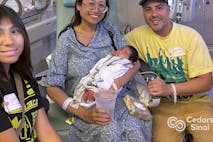
Human Interest
Bridget Sielicki
·
Human Interest
Nancy Flanders
·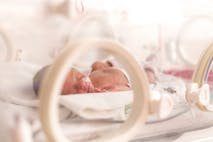
Human Interest
Nancy Flanders
·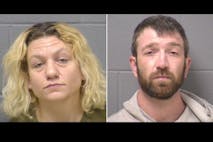
Human Interest
Nancy Flanders
·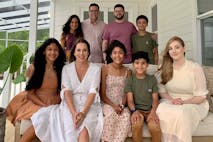
Human Interest
Lisa Bast
·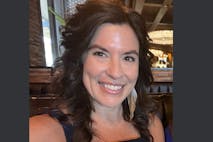
Human Interest
Lisa Bast
·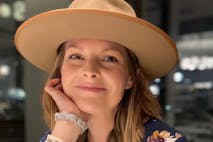
Human Interest
Lisa Bast
·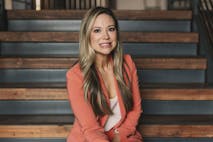
Human Interest
Lisa Bast
·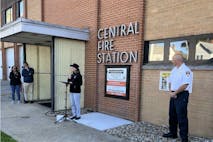
Lisa Bast
·